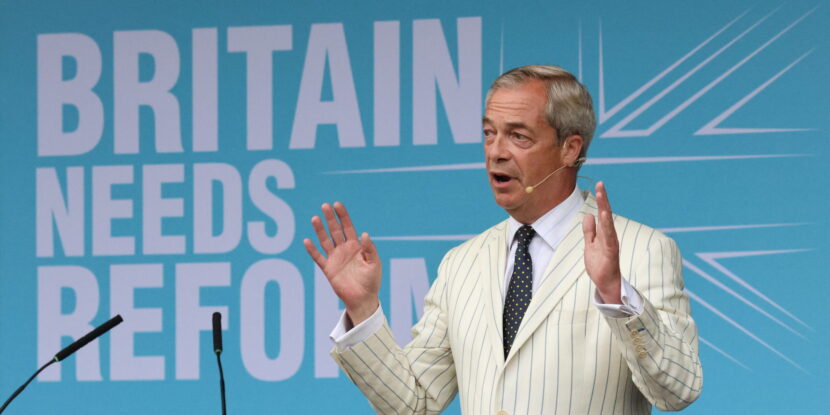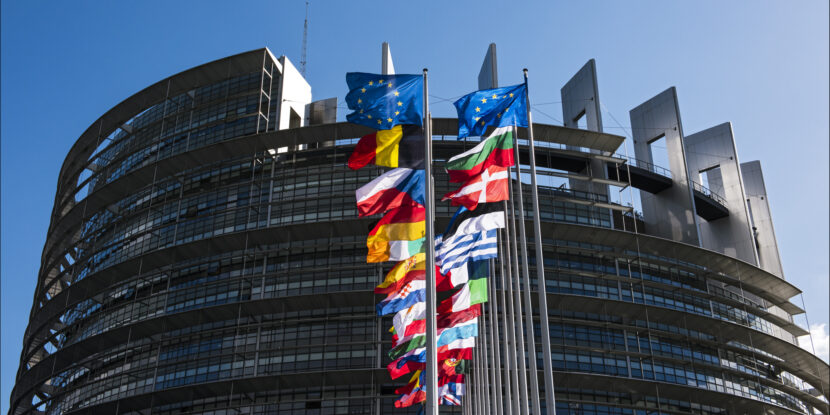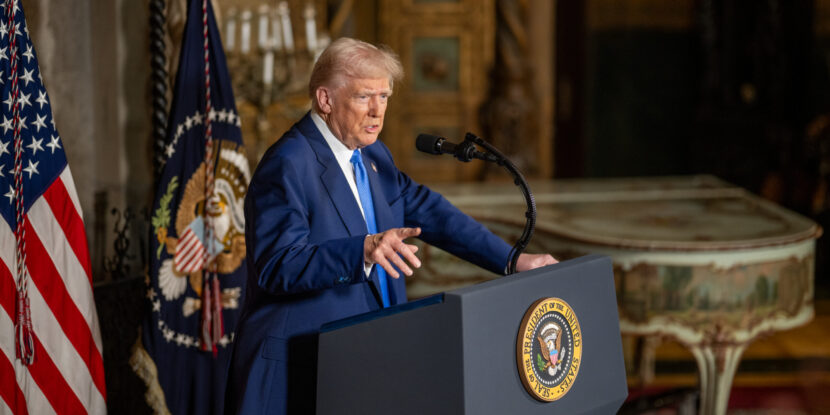
PULSE POINTS:
❓What Happened: A 26-year-old Afghan, Fayaz Khan (a.k.a. Mada Pasa), faces charges for threatening to kill Reform Party leader Nigel Farage after menacing online videos surfaced last year.
👥 Who’s Involved: Fayaz Khan, Nigel Farage, Metropolitan Police.
Your free, daily feed from The National Pulse.
📍 Where & When: Westminster Magistrates’ Court, London, Friday, April 11, 2025.
💬 Key Quote: “Fayaz Khan, of no fixed address, was charged on Tuesday, April 8 via postal charge requisition with threats to kill and sending a menacing communication.” – Metropolitan Police spokesman.
⚠️ Impact: Khan’s court date marks a reckoning for threats against Farage, while spotlighting border security issues.
IN FULL:
An Afghan migrant who targeted Reform Party leader Nigel Farage with death threats in viral online videos is set to face justice. Fayaz Khan, a 26-year-old also known as Mada Pasa, was charged with threats to kill and sending a menacing communication, the Metropolitan Police confirmed. He’s due to appear at Westminster Magistrates’ Court on Friday, April 11, after a months-long probe sparked by his social media activity.
Khan, of no fixed address, appeared on the radar last year, posting dozens of clips flaunting his migration journey across Europe—culminating in a video in which he appeared to threaten Farage’s life. The Metropolitan Police arrested Khan on November 1, 2024, after the video triggered a report of malicious communications. He initially received bail.
“A man has been charged in relation to threats made against an MP. Fayaz Khan, of no fixed address, was charged on Tuesday, 8 April via postal charge requisition with threats to kill and sending a menacing communication. He is due to appear at Westminster Magistrates’ Court on Friday, 11 April,” the Metropolitan Police confirmed in a statement.
“The charge follows an arrest made on Friday, 1 November in relation to a report of threatening communications and threats to kill towards an MP linked to a video posted on social media. The man was bailed pending further enquiries and subsequently charged as above.”
Farage, elected to Parliament for the first time last year and now leading national polls, has previously been targeted by activists throwing milkshakes and other missiles, but those responsible have never faced serious legal consequences.

PULSE POINTS:
❓What Happened: On Wednesday, before President Donald J. Trump announced he would be reducing tariffs on countries that have not “retaliated in any way, shape, or form against the United States,” the European Union (EU) approved an estimated $21 billion in retaliatory tariffs against a number of American exports.
👥 Who’s Involved: The European Union, the European Commission, and U.S. President Donald J. Trump.
Your free, daily feed from The National Pulse.
📍 Where & When: Brussels, Belgium on Wednesday, April 9.
💬 Key Quote: “The EU considers U.S. tariffs unjustified and damaging, causing economic harm to both sides, as well as the global economy. The EU has stated its clear preference to find negotiated outcomes with the U.S., which would be balanced and mutually beneficial,” the European Commission said in a statement.
⚠️ Impact: The EU retaliatory trade measures were to be imposed in three phases from April 15, impacting a number of American goods, including soybeans, motorcycles, orange juice, meat, tobacco, steel, and aluminum. Their fate is unclear now that President Trump has announced he will drop reciprocal tariffs—but not tariffs specific to certain tariffs, such as steel—to 10 percent for everyone but China for 90 days while trade negotiations are conducted.
IN FULL:
The European Union (EU) has cleared the way to impose an estimated $21 billion in retaliatory tariffs on American goods in response to steel and aluminum tariffs enacted by U.S. President Donald J. Trump last month. The European Commission—the EU’s unelected, quasi-executive body—announced the decision on Wednesday, noting that 26 of its 27 member states approved the trade measures. Viktor Orbán’s Hungary was the only EU country to oppose the tariff package.
“The EU considers U.S. tariffs unjustified and damaging, causing economic harm to both sides, as well as the global economy. The EU has stated its clear preference to find negotiated outcomes with the U.S., which would be balanced and mutually beneficial,” The European Commission said in a statement.
The EU tariffs on U.S. goods are to be enacted in three phases, the first of which will take effect next week. Additional tariff measures will be imposed in May, and the final phase will be imposed in December. As of the time of publication, this timeline does not appear to have been changed as a result of President Trump’s pause.
The EU’s retaliatory measure consisted mainly of a 25 percent trade duty on American goods such as soybeans, motorcycles, orange juice, meat, tobacco, steel, and aluminum. However, the list of products hit with the trade levy could grow, if the EU moves forward with retaliatory measures next week in response to President Trump’s 25 percent tariff on European automobiles and the now paused 20 percent reciprocal tariff on all EU goods. It is unclear, now that Trump has paused the reciprocal tariffs, whether the Europeans will move forward with additional retaliatory measures.
Following the EU’s approval of the retaliatory measures, President Trump announced he would reduce U.S. reciprocal tariffs on countries that have not imposed any new import duties on America to a universal 10 percent tariff for 90 days, while they negotiate bilateral trade agreements with the White House. China was the one named exception by Trump, and will instead face a 125 percent tariff for imposing retaliatory levies on the U.S.
Notably, sector-specific U.S. tariffs on products, including steel, aluminum, and automobiles, appear unaffected by this pause.
Today, EU countries backed our proposal to impose trade countermeasures on the United States, in response to unjustified steel and aluminium tariffs.
Duties will apply from 15 April.
They can be lifted at any time, should a fair and balanced negotiated solution be found.
— European Commission (@EU_Commission) April 9, 2025
Image: European Union 2017 – European Parliament.
show less

President Donald J. Trump announced on Wednesday that the United States will now impose a total tariff of 125 percent on Chinese imports, after raising the total trade duty to 104 percent less than 12 hours earlier. In addition, Trump signaled that he would reduce the tariffs imposed on countries that have not moved to retaliate against the U.S. for a 90-day period, as each engages in bilateral talks with the White House.
“Based on the lack of respect that China has shown to the World’s Markets, I am hereby raising the Tariff charged to China by the United States of America to 125%, effective immediately. At some point, hopefully in the near future, China will realize that the days of ripping off the U.S.A., and other Countries, is no longer sustainable or acceptable,” Trump wrote in a post on Truth Social, in response to China raising retaliatory tariffs on the U.S.
Your free, daily feed from The National Pulse.
Notably, the increasing tariff rate on Chinese goods appears to be forcing the People’s Bank of China (PBOC) into a series of emergency devaluations of the Chinese yuan, leading to increasing concerns for the Chinese economy.
The President continued: “Conversely, and based on the fact that more than 75 Countries have called Representatives of the United States, including the Departments of Commerce, Treasury, and the [United States Trade Representative], to negotiate a solution to the subjects being discussed relative to Trade, Trade Barriers, Tariffs, Currency Manipulation, and Non Monetary Tariffs, and that these Countries have not, at my strong suggestion, retaliated in any way, shape, or form against the United States, I have authorized a 90 day PAUSE, and a substantially lowered Reciprocal Tariff during this period, of 10%, also effective immediately.”
According to the White House, over 75 countries have now asked to engage in bilateral talks, with only China, the European Union (EU), and Canada having threatened any significant relation. Treasury Secretary Scott Bessent, speaking Wednesday afternoon, emphasized that the pause is necessary because of the number of nations entering talks, and the fact that President Trump wants to be a part of each negotiation.
READ:
show less
President Donald J. Trump announced on Wednesday that the United States will now impose a total tariff of 125 percent on Chinese imports, after raising the total trade duty to 104 percent less than 12 hours earlier. In addition, Trump signaled that he would reduce the tariffs imposed on countries that have not moved to retaliate against the U.S. for a 90-day period, as each engages in bilateral talks with the White House. show more

 2 months ago
6
2 months ago
6








 English (US) ·
English (US) ·